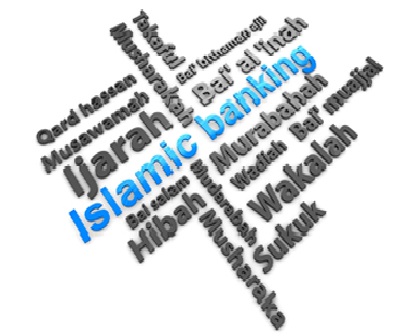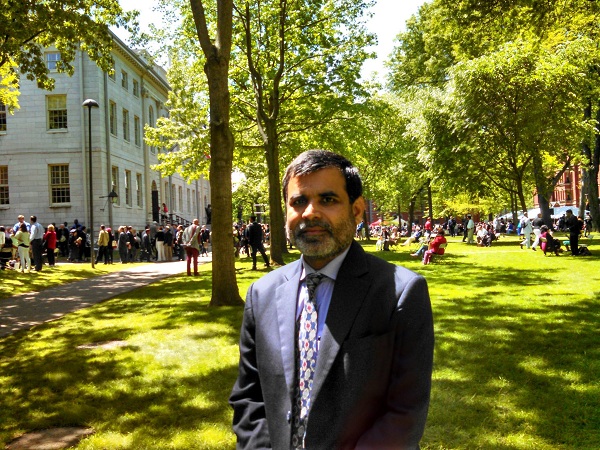
by Editor | May 25, 2021 | Islamic Finance, News

Europe is increasingly showing interest in Islamic finance education. There are 109 institutions that provide Islamic finance education in Europe, 63% of them in the UK.
In today’s connected world of business, Islamic finance is a concept that people working in the banking and finance industries are likely to come across in their careers. Islamic finance, despite its label, is not limited to Muslim countries. It has shown growth globally, including in Europe.
Total Islamic finance assets worldwide are projected to grow to $3.5 trillion by 2021 from $2 trillion currently, according to Thompson Reuters’ Islamic Finance Development “Resilient Growth” report published in 2016.
There are 622 institutions providing Islamic finance courses worldwide, and 201 provide Islamic finance degrees, according to the report.
Europe is increasingly showing interest in Islamic finance education. There are 109 institutions that provide Islamic finance education in Europe, 63% of them in the UK.
Britain issued its first Islamic bond (sukuk) worth £200 million (over $250 million), according to a statement by the treasury published on the government’s website in June 2014.
In UK
Being home to three million Muslims, according to the Office of National Statistics in 2016, the UK is a leading hub for the Islamic finance industry in Europe. It also has a fully Shariah-compliant retail bank: Al-Rayan Bank (formerly Islamic Bank of Britain).
“Britain is today the leading center for Islamic finance in the West, including British higher education institutions leading the non-Muslim world in the teaching of Islamic finance,” said Nyra Mahmood, managing director of the UK-based Simply Sharia Human Capital.
She emphasized the important role of financial technology can play in further introducing Islamic finance and banking.
“The opportunities emanating from the FinTech scene and the ethical financial space gives rise to how the UK’s Islamic finance can look at shaping and taking the lead in fulfilling the wider needs of society through technology and innovation, especially with a younger, more socially active generation wanting to join the industry,” she said.
She added that the younger generation expects more from their money, as they are socially conscious and want to see companies embrace their corporate social responsibility along with being part of a financial services sector.
“These are the issues driving a new generation of Islamic finance practitioners and consumers alike, both Muslim and non-Muslim in Europe and beyond.”
Mahmood said factors that can affect Islamic finance moving forward in the UK, directly and indirectly, include the aftermath of the Brexit vote, the UK’s economic outlook for 2017 onward, and customers’ needs. “With this in mind, the UK’s Islamic finance industry is well positioned.
“As the country looks beyond the EU, there’s an opportunity to align the UK with investors and partners from other Islamic hubs, namely the (Persian) Gulf Arab countries and Malaysia, which is already happening,” she said.
In a survey by Al-Rayan Bank in 2014, 57% of non-Muslim participants said Islamic finance was relevant to all faiths because they believed it was ethical.
In Spain
Spain is one of the countries curious about Islamic finance. One of its top business schools, IE Business School based in Madrid, has a center that teaches and researches Islamic finance.
“There’s a lack of knowledge in Islamic finance. Everybody is looking but no one is pushing yet,” Gonzalo Rodriguez, general coordinator at the Saudi-Spanish Center for Islamic Economics and Finance, said.
“After the financial crisis (in 2008), ethical banking became much more popular, especially among young people. We believe it’s fair, ethical and based on real economy, and we try to spread this approach.”
“We’re trying to spread knowledge of Islamic finance in Spain, and to reach out to all players to explain to them what Islamic finance is, its potential in Spain, and the opportunities we have for Islamic finance in the country,” Rodriguez said.
COURTESY: https://financialtribune.com/articles/world-economy/58656/islamic-finance-spreads-globally

by Editor | May 25, 2021 | Islamic Banking, News, Opinions


Dr Shariq Nisar
By Dr Shariq Nisar
Shariah banking, PLS banking, Ethical banking, Interest-free banking are different names used to identify Islamic banking which primarily works without relying on interest mechanism. Interest is strictly prohibited in Islam and therefore many countries especially those where Muslims live in majority have developed an alternate way of banking where profit is earned by banks through trade and investments rather than pure lending. Since early nineties, many developed countries took great interest in this new form of banking to attract investments from energy rich Arab world and also to improve financial inclusion of the domestic population which was hitherto shying of making full use of banking facilities due to religious concerns.
In India, while interest-free institutions can be traced prior to the country’s independence the real effort by Indian Muslims began during first non-congress government in 1970s. Nothing happened as the idea of Islamic banking itself was under formative stage then. Unrestrained proliferation of NBFCs in early 1990s saw the emergence of many community led institutions that claimed to work on Islamic principles of shunning interest and sharing of the risk and rewards with shareholders and depositors. In late nineties, RBI introduced large scale changes in NBFC regulations which eventually led to closure and collapse of hundreds of NBFCs in the country including some prominent Islamic NBFCs. After the new NBFC regulations the only Islamic Finance Company that survived was Kerala based Alternative Investments and Credits Ltd. (AICL). In 2009, Kerala Government tried to copy this model by promoting an Islamic NBFC (Al-Baraka Financial Services Ltd.) that would work without indulging in interest. The idea was to seek investments from public and some rich NRIs and use the funds to develop infrastructure in the state. All those contributing funds would be paid dividend instead of interest. Very soon a PIL was filed against Al-Baraka on the following counts:
- Forming an Islamic finance company was a clear instance of state favoring a particular religion;
- Taking advice from scholars of a particular community (Shariah Scholar) shows the identification of state with a particular religion to the exclusion of other faiths;
- Shariah prohibition of interest, alcohol and others are against the constitutions of India
The lower court ordered immediate stay of the company’s operation but Kerala High Court after hearing the views of Central Government, Reserve Bank of India and several others finally dismissed the petition filed against the company and paved the way for India’s first company promoted by government to do business on Islamic principles.
However, it’s worth noting that RBI stood in support of the petitioner arguing in the court that Islamic banking cannot function under Indian financial regulations. Prior to this RBI in its Working Group Report in 2005 (more popularly known as Anand Sinha Committee Report) had concluded that Islamic banking is not possible within existing Indian finance regulations. The same position was reiterated by the RBI Governor at a public function in 2012.
“The banking act doesn’t conform to Islamic banking because it allows banks to borrow from and deposit money with RBI on Interest” (D Subbarao, Governor RBI, Times of India October 4, 2012).
To prove its position RBI canceled the NBFC license of AICL on the allegation that AICL violated RBI’s prescription of fair interest practice code. This was very surprising as RBI had given license to the company based on the proposal that company would work on the basis of profit and loss sharing instead of interest. The company since has gone to the court where the matter is still pending.
The change in RBI’s leadership in 2013 brought some fresh thinking which probably led RBI to develop a positive impression of the concept. First it was Deepak Mohanty Committee that in December 2015 recommended that;
“commercial banks in India may be enabled to open specialized interest-free windows with simple products like demand deposits, agency and participation securities on their liability side and to offer products based on cost-plus financing and deferred payment, deferred delivery contracts on the asset side”.
And thereafter an RTI query has revealed that RBI has written to the government regarding gradual introduction of Islamic banking in the country. Media went gung-ho in praising this move of RBI as sign of new government’s commitment to “Sabka Saath Sabka Vikas” but soon all euphoria died when the Union Finance Ministry declared that Islamic banking was not relevant any more. The Minister of State for Finance Mr. Santosh Kumar Gangwar replied in the Loksabha that various legal changes would become necessary if even limited products were to be introduced under Islamic banking.
One fails to understand the logic behind not allowing a banking model that is practiced in nearly 75 countries of the world including some of the most secular, democratic and advanced.
| Time Line (Islamic Banking and Finance in India) |
Year |
| RBI appoints Anand Sinha Committee for studying Islamic Financial Products |
2005 |
| Raghuram Rajan Committee recommends Interest-free banking for financial inclusion |
2008 |
| Ministry of Minority Affairs invites bids for reconstruction of National Minority Development Finance Corporation (NMDFC) on shariah Lines |
2008 |
| SEBI permits India’s first shariah compliant Mutual Fund Scheme |
2009 |
| SEBI permits India’s first shariah compliant Venture Capital Fund |
2009 |
| GICRe enters Retakaful (Islamic reinsurance) in the foreign reinsurance market. |
2009 |
| Government of Kerala announces starting of an Islamic NBFC |
2009 |
| BSE and TASIS launch BSE-TASIS Shariah 50 Index |
2010 |
| Kerala High Court dismisses petition filed against Kerala-based Islamic finance company |
2011 |
| RBI cancels license of Islamic NBFC |
2012 |
| RBI Constituted an Inter-Departmental Group (IDG) on Islamic Banking to understand the feasibility of introducing Islamic banking in India |
2013 |
| SBI defers the launch of Shariah Equity Fund |
2014 |
| RBI Recommends Introduction of Interest-free Banking by Indian Commercial Banks |
2015 |
| RBI’s Inter-Departmental Group (IDG) on Islamic Banking submits its Report to the Government of India |
2016 |

by Editor | May 25, 2021 | Business, Markets, Online Marketing, Sales
 New Delhi, (IANS) : Amazon is improving its foothold in India and the American e-commerce giant could be the second biggest player after Flipkart in the online retail market by 2019, says a new Bank of America Merrill Lynch report.
New Delhi, (IANS) : Amazon is improving its foothold in India and the American e-commerce giant could be the second biggest player after Flipkart in the online retail market by 2019, says a new Bank of America Merrill Lynch report.
India could also become Amazon’s second largest market (after the US) as it plans to invest $5 billion in its India business, the report released on Tuesday said.
“For last couple of months, Amazon India gross sales are higher than that of Flipkart standalone (excluding Myntra),” it added.
“We now expect Amazon’s GMV (gross merchandise value) market share to improve to 37 per cent by 2019 from 21 per cent in 2015 and expect it to be close No 2 behind Flipkart,” the report said.
While revenues are relatively small to Amazon’s global scale, Amazon India could generate $81 billion in GMV and $2.2bn in operating profit by 2025.
Most of Amazon’s gains have come at the expense of Snapdeal and other sellers, not Flipkart, according to the report.
Flipkart still remains the market leader in India and “even in terms of customer satisfaction, reports indicate that it remains the leader, ahead of both Amazon and Snapdeal”, according to the report.
Amazon has been able to benefit from global brand and establishing reliability of service among consumers, concentrating on offering superior customer service and wider assortment of products.
Amazon has also tied up with Vakrangee, a franchisee with strong presence in rural/underdeveloped areas to fortify its rural presence at relatively lower investments.
As of June this year, Amazon is already active in more than 1,000 outlets, with plans to increase to 75,000 outlets by 2020, the report noted.
Alibaba is looking to enter into the Indian e-commerce market by early next year as a more direct entry, despite it having investments in PayTM/Snapdeal.
“We note that similar to Amazon, Alibaba likely considers India as the next big market apart from its home market and is looking to gain traction there,” the report said.

by Editor | May 25, 2021 | Investing

Nairobi, (IANS) Indian on Monday offered to increase its investments in Kenya and for this purpose issued a guide book for Indian investors on doing business in Kenya. Presenting this guide book here on his first visit to Kenya, Prime Minister Narendra Modi noted that India is the largest trading partner of Kenya. “India is also the second largest investor here. We will be happy to further remove the imbalance in trade between us. We will also be happy to enhance the level of investment in Kenya,” he said addressing the AIndia-Kenya Business Forum.
“As a demonstration of our commitment for ‘Make it Kenya’, we have printed a guide book on Doing Business in Kenya. This is for guiding the Indian investors to invest here,” he said. Noting many Indian companies have made Kenya their base to operate in the whole of East Africa, Modi added: “Whether it is mines, minerals or machines; all are rewarding areas. We should jointly explore the opportunities.”
An 80-member delegation of business leaders under the aegis of industry chamber Ficci that is accompanying Modi on his official visit to four African nations organised the India-Tanzania Business Forum and India-Kenya Business Forum on July 10 and 11 at Dar-e-Salaam and Nairobi respectively.
Among the agreements signed on Monday between both countries, two pertained to lines of credit from India to Kenya — one on development of various small and medium enterprises and the other on upgrading a textile factory. Bilateral trade in 2014-15 was worth a little over $4.2 billion, of which India’s exports to Kenya were valued around $4.1 billion.

by Editor | May 25, 2021 | Corporate, Corporate Buzz
 Bengaluru,(IANS) IT major SAP India on Monday announced emerging as the seventh best place to work in India in the Great Place to Work Institute’s 2016 survey.
Bengaluru,(IANS) IT major SAP India on Monday announced emerging as the seventh best place to work in India in the Great Place to Work Institute’s 2016 survey.
“We take great pride in our human resource policies, and the culture of entrepreneurship and innovation we have enabled,” said SAP Labs India Managing Director Dilipkumar Khandelwal in a statement.
Great Place to Work Institute has surveyed 791 organisations across 16 industries, quizzing over 1,55,119 employees along with a leading business daily to adjudge the best Indian work places.
In special categories, SAP ranked number two in the IT industry in India according to the survey.
People-centric policies, fostering innovation, inspiring leadership and atmosphere of inclusivity enabled SAP India to shine in the survey, the statement said.
Every year, Great Place to Work Institute releases a list of best work places in India.







